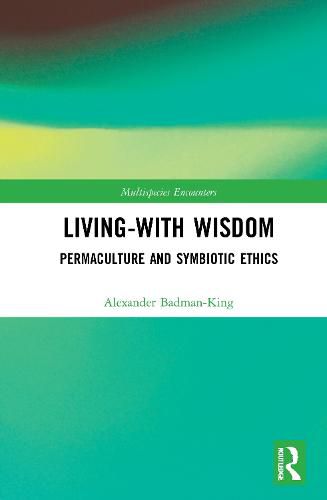Readings Newsletter
Become a Readings Member to make your shopping experience even easier.
Sign in or sign up for free!
You’re not far away from qualifying for FREE standard shipping within Australia
You’ve qualified for FREE standard shipping within Australia
The cart is loading…






Living-With Wisdom explores the way in which ancient Greek models of philosophy as an attempt to live ‘the good life’ can and should be realised through the practice of permaculture. Following the thought of Plato and Aristotle, the author places the achievement of wisdom and fulfilment at the centre of the good life, identifying these with the achievement of a complex admixture of virtues, which are dependent on an appreciation of goodness itself.
The book then examines the manner in which permaculture - or the practice of sustainable farming or ethical gardening - can provide us with the best opportunity to acquire this ‘moral knowledge’ through the close relationships we can have with other living beings and things. A study of the nature of wisdom and a means of ‘living-with philosophy’, Living-With Wisdom: Permaculture and Symbiotic Ethics reveals that it is by appreciating and sharing in the lives of other organisms that we engage with many dilemmas of life and death and have the opportunity to exercise the virtues.
As such, it will appeal to scholars of philosophy, social theory and anthrozoology with interests in virtue ethics, environmental ethics, animal ethics and human-animal relations.
$9.00 standard shipping within Australia
FREE standard shipping within Australia for orders over $100.00
Express & International shipping calculated at checkout
Living-With Wisdom explores the way in which ancient Greek models of philosophy as an attempt to live ‘the good life’ can and should be realised through the practice of permaculture. Following the thought of Plato and Aristotle, the author places the achievement of wisdom and fulfilment at the centre of the good life, identifying these with the achievement of a complex admixture of virtues, which are dependent on an appreciation of goodness itself.
The book then examines the manner in which permaculture - or the practice of sustainable farming or ethical gardening - can provide us with the best opportunity to acquire this ‘moral knowledge’ through the close relationships we can have with other living beings and things. A study of the nature of wisdom and a means of ‘living-with philosophy’, Living-With Wisdom: Permaculture and Symbiotic Ethics reveals that it is by appreciating and sharing in the lives of other organisms that we engage with many dilemmas of life and death and have the opportunity to exercise the virtues.
As such, it will appeal to scholars of philosophy, social theory and anthrozoology with interests in virtue ethics, environmental ethics, animal ethics and human-animal relations.